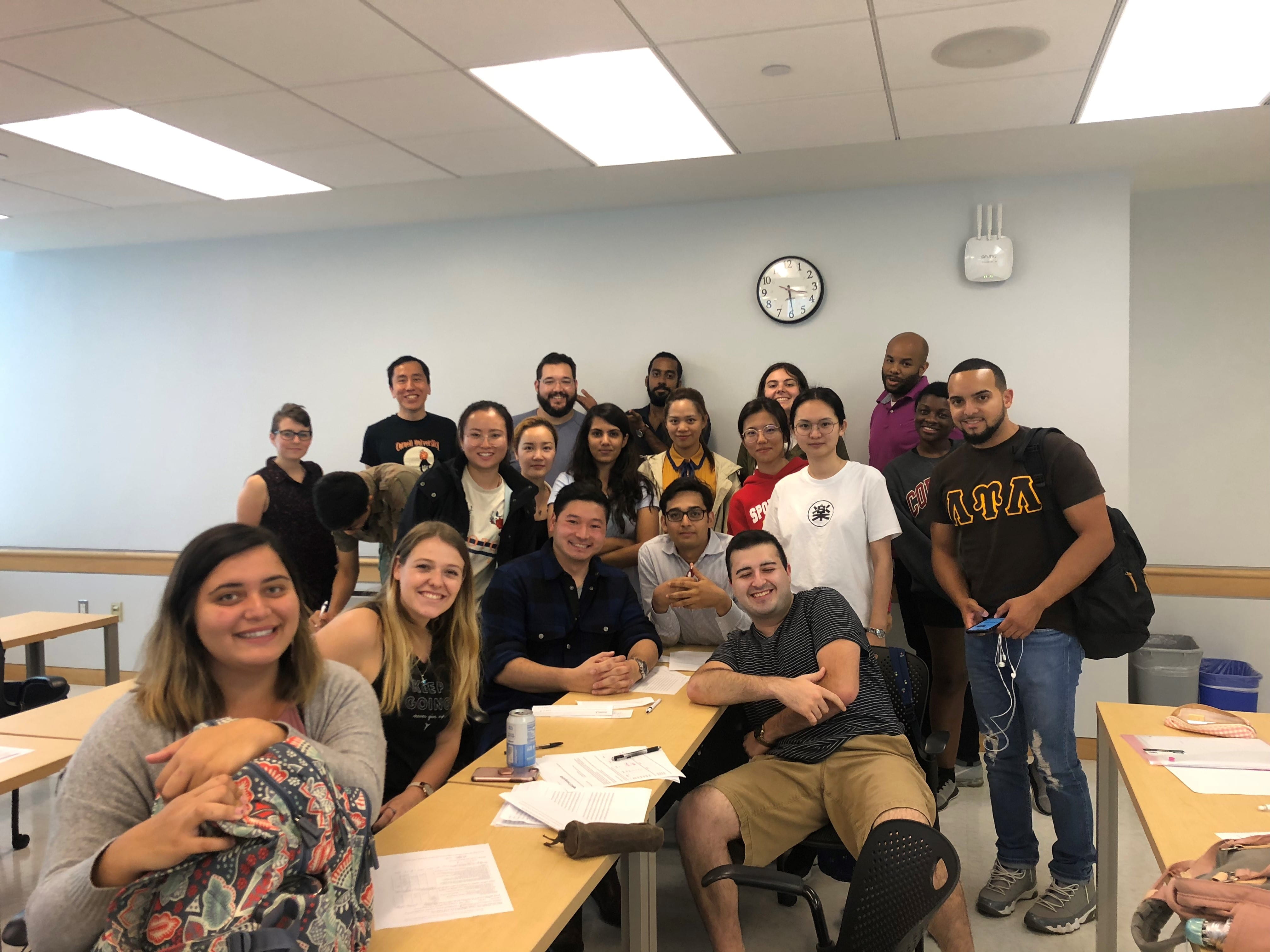Students in the MPH Program Joined a Tabletop Training Aiming to Enhance Regional Epidemiologic Capacity.
Written by Hirokazu Togo
“I believe this type of cross-campus collaboration activity is one of the strengths that Cornell MPH program has, leading to mutual benefits across campus and exemplifying the importance of transdisciplinary approach to improve public health.”
On Sept 7, 2018, a number of Cornell University’s Master of Public Health Program students, in both Infectious Disease Epidemiology and Food Systems for Health concentrations, joined a trial tabletop training activity, developed to train junior epidemiologists working at local/county/state public health departments. The training was developed based on capacity building work the New York Integrated Food Safety Center of Excellence provided in 2018.
The New York State Department of Health and Cornell University are the nation’s newest addition to the Integrated Food Safety Center of Excellence, working as partners to strengthen foodborne illness surveillance, investigations, and outbreak responses. This CDC-funded center focuses on six activity areas to support and enhance the outbreak investigation capacities of epidemiologists, testing laboratories and environmental health services in the northeast region of the U.S.; one activity area focuses specifically on competency-based training of the public health workforce in epidemiological surveillance and investigation techniques.
Over the last few years, there has been a rapid transformation in technologies used for outbreak investigation. Specifically, bacterial isolate subtyping methods have changed from Pulsed-Field Gel Electrophoresis (PFGE) to Whole Genome Sequencing (WGS). WGS provides a higher resolution to differentiate related from nonrelated food poisoning cases. However, the complexity of WGS data interpretation can be challenging for new epidemiologists and there has been a growing need for hands-on trainings on WGS data analysis. The New York Integrated Food Safety Center of Excellence responded. Dr. Renato Orsi, a Senior Research Associate in Cornell’s Department of Food Science, and his team designed and hosted the training exercise.
At the beginning of the training, MPH students learned about the basics of WGS and its use in foodborne disease investigations via a lecture-style presentation led by Dr. Orsi. The students were then given a mock case scenario based on real foodborne disease outbreaks. While WGS analyses are normally conducted by computer, students analyzed the outputs by hand using only paper and pencil. This hands-on process helped students understand the underlying theory of WGS and how a phylogenetic tree is created and used to identify case clusters. At the end of the training, students with deeper understanding of WGS provided feedback to improve the quality and contents of the training before it is used with health department staff.


